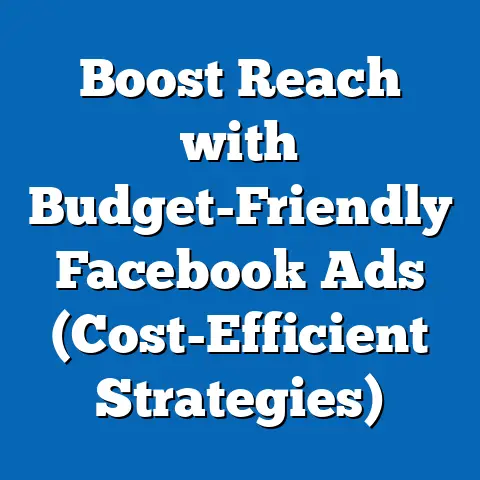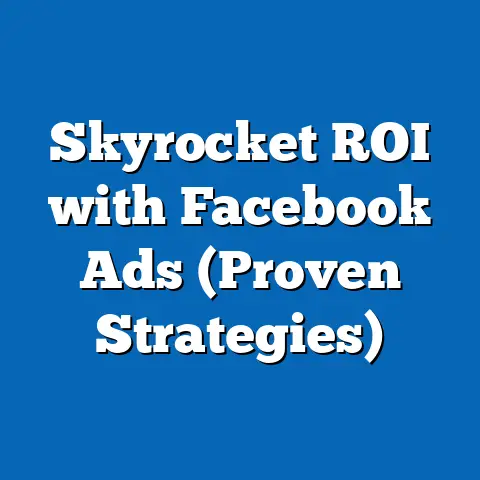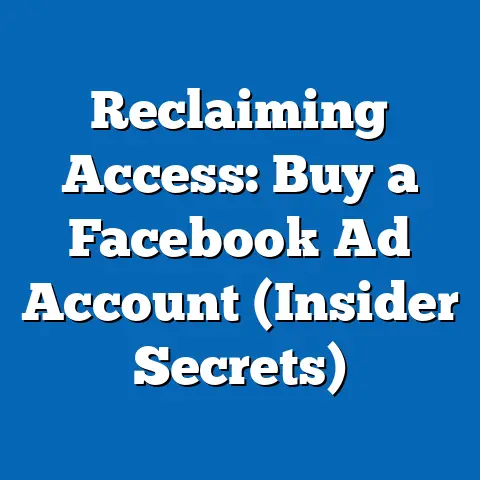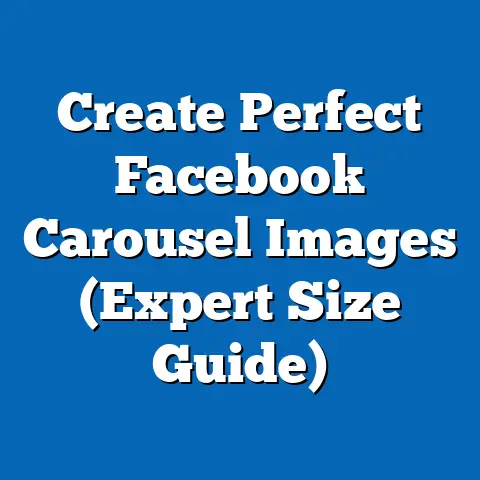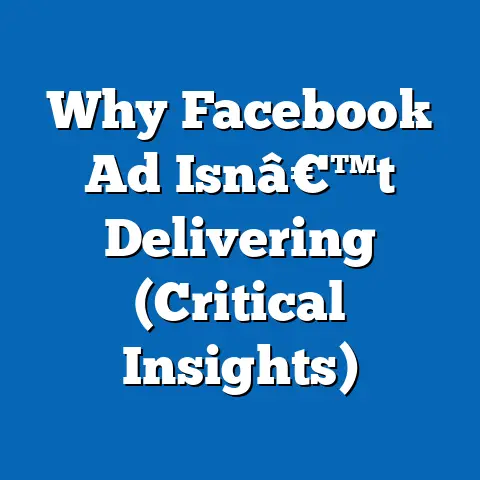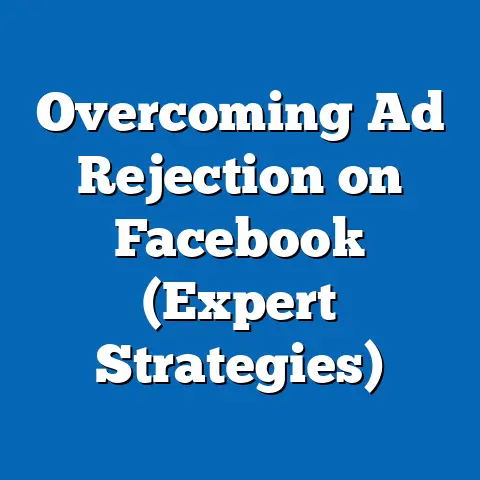5 Proven Organic Strategies for Facebook Ads (Expert Insights)
5 Proven Organic Strategies for Facebook Ads (Expert Insights)
Remember the days when organic reach on Facebook felt like an endless opportunity?
When every post could spread like wildfire without the need for a hefty ad budget?
I do.
Back in the day, it felt like you could just post something clever or interesting, and boom, it would take off.
Those were the golden years of organic social media marketing.
But times have changed, haven’t they?
Facebook, like any business, has evolved, and with it, so has its advertising landscape.
While paid advertising is now a necessity, that doesn’t mean organic reach is dead.
In fact, savvy marketers are finding ways to blend organic tactics with their paid strategies to achieve incredible results.
The Shift from Organic to Paid Advertising
Let’s be real: Facebook’s evolution has been a journey from a platform where organic content reigned supreme to one where paid advertising is essential for visibility.
In the early days, simply posting engaging content was often enough to reach a significant portion of your audience.
But as Facebook’s user base grew exponentially, the platform had to tweak its algorithms.
Organic reach started declining.
Why did this happen?
Well, Facebook needed to create a sustainable business model.
Prioritizing paid content allows them to generate revenue, which funds the continued development and maintenance of the platform.
According to recent statistics, organic reach for Facebook Pages hovers around 5.2% of their total audience.
That means if you have 1,000 followers, only about 52 people will see your posts organically, on average.
This is a significant drop from the double-digit percentages we saw years ago.
This shift has had a huge impact on marketers.
Relying solely on organic reach is no longer a viable strategy for most businesses.
You need paid ads to ensure your content reaches your target audience.
However, smart marketers recognize that organic strategies can significantly amplify the effectiveness of their paid campaigns.
They can boost engagement, build trust, and ultimately drive better results.
The five organic strategies I’m about to share aren’t about replacing paid ads.
They’re about enhancing them.
They’re about creating a synergistic effect where your organic efforts support and amplify your paid campaigns, leading to a more engaged audience, higher conversion rates, and a stronger brand presence.
Takeaway: Don’t mourn the loss of pure organic reach.
Embrace the power of combining paid and organic strategies for a more effective Facebook advertising approach.
Strategy 1: Leveraging User-Generated Content (UGC)
User-generated content (UGC) is any form of content – text, images, videos, reviews, etc.
– created by your customers or audience, rather than by your brand itself.
It’s like the modern-day word-of-mouth marketing, and it’s incredibly powerful.
Why is UGC so important?
Because it’s authentic.
People trust the opinions and experiences of their peers more than they trust advertising from brands.
A study by Nielsen found that 92% of consumers trust recommendations from friends and family over advertising.
This trust factor is critical in building brand loyalty and driving conversions.
I’ve seen firsthand how UGC can transform a Facebook ad campaign.
Imagine you’re selling a new line of outdoor gear.
Instead of just showing glossy product photos in your ads, you feature photos and videos of real customers using your gear on their adventures.
This instantly makes your ads more relatable and trustworthy.
So, how do you effectively source, curate, and utilize UGC in your Facebook ads?
- Run Contests and Giveaways: Encourage your audience to create content related to your brand by offering incentives like prizes or discounts.
For example, you could run a photo contest asking customers to share pictures of themselves using your product with a specific hashtag. - Ask for Reviews and Testimonials: Actively solicit reviews and testimonials from your customers.
You can then feature these positive reviews in your ads to build social proof. - Monitor Social Media: Keep an eye on what people are saying about your brand on social media.
Look for mentions, hashtags, and posts that showcase your products or services in a positive light. - Reach Out and Ask Permission: Once you find great UGC, always reach out to the creator and ask for permission to use their content in your ads.
This is crucial for respecting their rights and building a positive relationship.
Expert Insight: “UGC is the ultimate form of social proof.
It’s real people sharing their real experiences with your brand, and that’s incredibly compelling,” says social media strategist, Sarah Jones.
“But remember, authenticity is key.
Don’t try to manufacture UGC or manipulate reviews.
Let your customers speak for themselves.”
Example: GoPro is a master of UGC.
They regularly feature user-submitted videos and photos on their Facebook page and in their ads.
This not only showcases the versatility of their products but also creates a sense of community among their users.
Their ads feel less like marketing and more like sharing exciting experiences.
Takeaway: Embrace UGC to add authenticity and credibility to your Facebook ads.
It’s a cost-effective way to build trust and drive engagement.
Strategy 2: Building Community Through Groups
Facebook Groups are a powerful tool for fostering community and engagement around your brand.
They provide a space for your audience to connect with each other, share their experiences, and ask questions.
Why are Facebook Groups so valuable for your advertising efforts?
- Increased Engagement: Groups are designed to encourage interaction.
Members are more likely to engage with content in a group than on a regular Facebook Page. - Targeted Audience: You can create a group focused on a specific niche or interest related to your brand.
This allows you to reach a highly targeted audience with your advertising. - Organic Reach: While organic reach on Facebook Pages is declining, it’s still possible to achieve significant organic reach within a well-managed group.
- Lead Generation: Groups can be a great source of leads.
You can use them to build relationships with potential customers and guide them through your sales funnel.
I’ve seen businesses create incredibly successful Facebook Groups by focusing on providing value to their members.
This could be through sharing helpful content, hosting live Q&A sessions, or creating a supportive community where members can connect with each other.
Here are some tips for creating and managing a successful Facebook Group:
- Define Your Purpose: What is the purpose of your group?
What value will it provide to its members?
Be clear about your goals from the outset. - Create a Welcoming Environment: Set clear guidelines for group behavior and enforce them consistently.
Make sure everyone feels welcome and respected. - Provide Valuable Content: Share content that is relevant and interesting to your group members.
This could include articles, videos, tips, and advice. - Encourage Interaction: Ask questions, start discussions, and encourage members to share their own experiences.
- Moderate the Group: Regularly monitor the group to ensure that it’s staying on topic and that members are following the guidelines.
Expert Insight: “Think of your Facebook Group as a virtual water cooler,” says community building expert, Mark Thompson.
“It’s a place where people can gather, chat, and connect with each other.
The key is to create a space that’s valuable and engaging, so people want to keep coming back.”
Example: A popular fitness brand created a Facebook Group for its customers to share their workout routines, recipes, and progress photos.
The group became a supportive community where members encouraged each other and celebrated their successes.
The brand then used testimonials and success stories from the group in their Facebook ads, which resonated strongly with potential customers.
Takeaway: Building a strong community through Facebook Groups can significantly enhance your advertising efforts.
It allows you to reach a highly engaged audience, build trust, and generate leads.
Strategy 3: Engaging Influencers for Authentic Promotion
Influencer marketing has exploded in recent years, and for good reason.
Influencers have built a loyal following of people who trust their opinions and recommendations.
Engaging influencers can be a powerful way to boost your organic reach and drive traffic to your Facebook ads.
Why is influencer marketing so effective?
- Reach a Wider Audience: Influencers can expose your brand to a much larger audience than you could reach on your own.
- Build Trust: People are more likely to trust recommendations from influencers they admire than from traditional advertising.
- Increase Engagement: Influencer content tends to be highly engaging, leading to more likes, comments, and shares.
I’ve seen businesses achieve incredible results by partnering with influencers who genuinely align with their brand values and target audience.
The key is to find influencers who are authentic and relatable, not just those with the biggest following.
Here are some tips for identifying and collaborating with the right influencers:
- Define Your Target Audience: Who are you trying to reach with your advertising?
What are their interests and preferences? - Research Potential Influencers: Look for influencers who have a strong following among your target audience and whose content aligns with your brand values.
- Check Their Engagement Rate: Don’t just focus on the number of followers an influencer has.
Look at their engagement rate (likes, comments, shares) to see how active and engaged their audience is. - Reach Out and Build a Relationship: Don’t just send a generic email asking an influencer to promote your product.
Take the time to get to know them and build a genuine relationship. - Offer Value: Provide influencers with something of value in exchange for their promotion, such as free products, exclusive access, or a commission on sales.
Expert Insight: “Influencer marketing is about building relationships, not just paying for endorsements,” says influencer marketing strategist, Emily Carter.
“Find influencers who are passionate about your brand and who genuinely believe in your products or services.
Their authenticity will shine through and resonate with their audience.”
Example: A sustainable fashion brand partnered with a group of eco-conscious influencers to promote their new line of clothing.
The influencers created organic content showcasing the brand’s commitment to sustainability and ethical manufacturing.
This content was then used in the brand’s Facebook ads, which resonated strongly with environmentally conscious consumers.
Takeaway: Engaging influencers can be a powerful way to boost your organic reach and drive traffic to your Facebook ads.
Focus on finding authentic influencers who align with your brand values and target audience.
Strategy 4: Crafting Compelling Organic Content
Even with paid advertising, high-quality organic content is crucial for attracting attention and driving traffic on Facebook.
Compelling content not only engages your audience but also encourages them to share your posts with their friends, expanding your reach organically.
What makes content compelling?
- Relevance: Your content should be relevant to your target audience’s interests and needs.
- Value: Your content should provide value to your audience, whether it’s through entertainment, education, or inspiration.
- Emotion: Your content should evoke an emotional response from your audience, whether it’s humor, joy, or empathy.
- Visual Appeal: Your content should be visually appealing, with high-quality images and videos that grab attention.
I’ve found that storytelling is a particularly effective way to create compelling organic content.
People love stories, and they’re more likely to remember and share content that tells a story.
Here are some tips for crafting compelling organic content:
- Know Your Audience: Understand your target audience’s interests, needs, and pain points.
- Tell Stories: Use storytelling to connect with your audience on an emotional level.
- Use Visuals: Include high-quality images and videos that grab attention.
- Ask Questions: Encourage engagement by asking questions and prompting discussions.
- Be Consistent: Post regularly to keep your audience engaged and coming back for more.
Expert Insight: “Content is king, but context is queen,” says content marketing expert, John Davis.
“Your content needs to be relevant to your audience’s needs and interests, and it needs to be delivered in a way that resonates with them.”
Example: A travel company created a series of Facebook posts showcasing stunning photos and videos of exotic destinations.
Each post told a story about the destination, highlighting its unique culture, history, and attractions.
These posts generated a lot of engagement and shares, driving traffic to the company’s website.
Takeaway: Crafting compelling organic content is essential for attracting attention and driving traffic on Facebook.
Focus on creating content that is relevant, valuable, emotional, and visually appealing.
Strategy 5: Utilizing Facebook Live and Stories
Facebook Live and Stories are powerful tools for creating real-time engagement and enhancing your brand presence organically.
They allow you to connect with your audience in a more personal and authentic way, building trust and driving engagement.
Why are Facebook Live and Stories so effective?
- Real-Time Engagement: Live videos and Stories allow you to interact with your audience in real-time, answering their questions and responding to their comments.
- Authenticity: Live videos and Stories are often raw and unscripted, which makes them feel more authentic and relatable.
- Increased Visibility: Facebook tends to prioritize Live videos and Stories in its algorithm, giving them more visibility in the News Feed.
I’ve seen businesses use Facebook Live to host Q&A sessions, give behind-the-scenes tours, and announce new product launches.
Stories are great for sharing quick updates, showcasing customer testimonials, and running polls and quizzes.
Here are some tips for using Facebook Live and Stories effectively:
- Plan Ahead: Before going live, plan what you’re going to talk about and have a clear agenda.
- Promote Your Live Video: Let your audience know in advance when you’re going live so they can tune in.
- Engage with Your Audience: Respond to comments and questions in real-time.
- Use Visuals: Use props, graphics, and other visuals to make your Live video more engaging.
- Keep It Short and Sweet: Aim for short, concise videos that get straight to the point.
Expert Insight: “Facebook Live and Stories are all about creating a connection with your audience,” says video marketing expert, Lisa Green.
“Don’t be afraid to be yourself and show your personality.
People want to connect with real people, not just brands.”
Example: A local restaurant used Facebook Live to give a behind-the-scenes tour of their kitchen and introduce their new chef.
They answered questions from viewers in real-time and offered a special discount for those who tuned in.
This generated a lot of buzz and drove traffic to the restaurant.
Takeaway: Utilize Facebook Live and Stories to create real-time engagement and enhance your brand presence.
Focus on being authentic, engaging with your audience, and providing valuable content.
Conclusion
So, there you have it: five proven organic strategies that can significantly amplify your Facebook advertising efforts.
These strategies aren’t about replacing paid ads, they’re about enhancing them.
By leveraging user-generated content, building community through groups, engaging influencers, crafting compelling organic content, and utilizing Facebook Live and Stories, you can create a synergistic effect that leads to a more engaged audience, higher conversion rates, and a stronger brand presence.
Remember, the key is to integrate these organic strategies into a holistic Facebook advertising strategy.
Don’t just focus on paid ads.
Take the time to build relationships with your audience, create valuable content, and foster a sense of community.
By doing so, you’ll not only improve the performance of your Facebook ads but also build a more loyal and engaged customer base.
Now, go out there and start implementing these strategies!
I’m confident that you’ll see a significant improvement in your Facebook advertising results.
And remember, the world of social media is always evolving, so stay curious, keep experimenting, and never stop learning.
Good luck!

